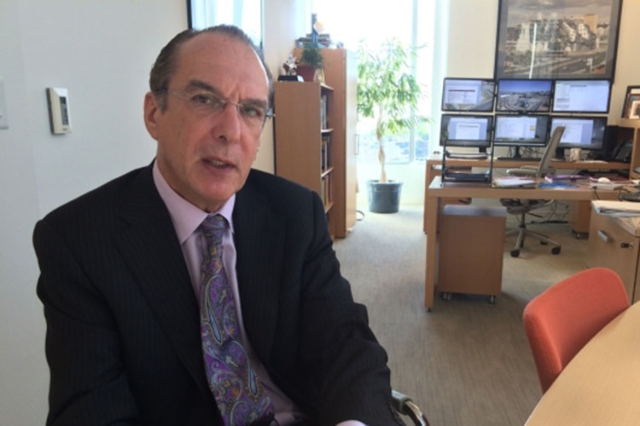Local researchers welcome Clinton proposal to spend $2 billion to battle Alzheimer’s disease
WASHINGTON — Democratic presidential candidate Hillary Clinton's proposal to spent $2 billion a year to battle Alzheimer's disease was welcomed Tuesday by Las Vegas researchers who say effective treatments are desperately needed given the growing number of elderly affected by the disease.
"There is no question this would accelerate research and bring us closer to the current president's articulated goal of finding a treatment by 2025. This (additional funding) would make a lot of difference in the programs we could develop," Jeffrey Cummings, director of the Cleveland Clinic Lou Ruvo Center for Brain Health in Las Vegas, said.
The Clinton campaign consulted Cummings before it released the proposal. In reviewing the plan, Cummings said some of his ideas were included.
"We've got to respond to the disease, which, if we don't find a treatment, will cost the economy $1 trillion a year by 2050," he said.
More than 5 million Americans are living with Alzheimer's, and as many as 16 million will have the disease in 2050. The cost of caring for those with Alzheimer's and other dementias is estimated to total $226 billion in 2015, increasing to $1.1 trillion by mid-century, according to the Alzheimer's Association. An estimated 28,000 Nevadans have Alzheimer's, with that number projected to rise to 42,000 by 2025.
Congress last week increased funding for Alzheimer's research in the federal budget to about $935 million — up from $586 million in recent years.
UNLV professor and neuroscience researcher Jefferson Kinney also welcomed Clinton's focus on Alzheimer's disease, saying a major funding increase is needed to spur new research into finding effective treatments.
"The number of people with Alzheimer's is increasing tremendously, so this is absolutely needed," he said.
UNLV and the Lou Ruvo Center recently received an $11.1 million federal grant to establish the Center of Biomedical Research Excellence in Southern Nevada. The award funds three research projects including Kinney's study of the interplay between brain inflammation and Alzheimer's.
"There is a strong drive in a lot of us to combat this disease. And, to have the resources and a plan like the one proposed should open doors to new systems and mechanisms we haven't fully investigated," Kinney said.
Cummings is optimistic that federal lawmakers from both political parties will support additional Alzheimer's research funding.
"If you are a member of Congress who is 50 or 60 years old you likely have a parent affected by the disease because it is so common. So, you have the personal knowledge on both sides of the aisle," Cummings said.
Contact Peter Urban at purban@reviewjournal.com or at 202-783-1760. Find him on Twitter: @PUrbanDC



















